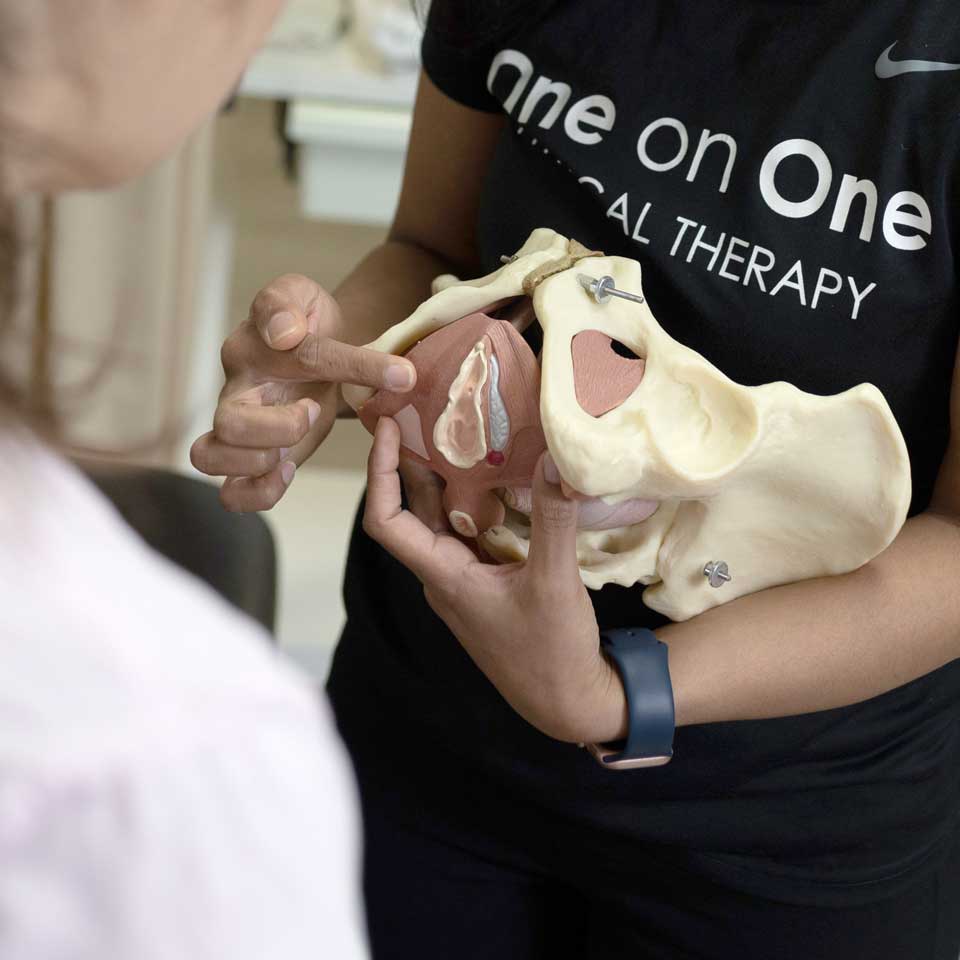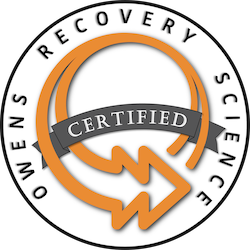Pelvic Health: Pelvic Floor Physical Therapy at One on One Physical Therapy
Our experienced team of pelvic health specialists is dedicated to offering personalized, effective care tailored to your unique needs. Whether you’re dealing with pelvic floor dysfunction, postpartum challenges, or other pelvic health issues, we are here to support you on your journey to optimal health.

Why Choose One on One Pelvic Health Physical Therapy in Atlanta?
At One on One Pelvic Health Physical Therapy, we prioritize your well-being and recovery by providing exceptional care and expertise. Here are some of the reasons why our practice stands out as the top choice for pelvic health therapy in Atlanta:
Cutting-Edge Pelvic Health Interventions in Atlanta
Our comprehensive range of cutting-edge interventions ensures that we provide the highest quality care for your pelvic health needs. Our services include:
Expert Manual Therapy Techniques
Our therapists are skilled in manual therapy techniques that target the muscles, joints, and tissues of the pelvic region. These hands-on treatments are designed to alleviate pain, improve mobility, and enhance function.
Comprehensive Intravaginal and Intrarectal Exams and Treatments
We offer thorough assessments and treatments that address the specific needs of each patient. Our approach is both gentle and effective, ensuring that we provide the best care for your pelvic health.
Pilates-Based Rehab
Pilates-based rehabilitation focuses on core strength, flexibility, and body awareness. Our therapists incorporate Pilates principles into treatment plans to improve pelvic floor function and overall physical well-being.
Advanced Neuromuscular Re-education
We utilize advanced techniques to retrain and strengthen the pelvic floor muscles, enhancing coordination and function. Our neuromuscular re-education interventions are tailored to each patient’s needs.
Holistic Breathing and Relaxation Techniques
Breathing and relaxation techniques play a crucial role in pelvic health. We teach strategies to promote relaxation, reduce tension, and improve overall well-being.
State-of-the-Art EMG Biofeedback
EMG biofeedback provides valuable insights into muscle activity and function. We use this technology to guide treatment and track progress, ensuring effective interventions and optimal outcomes.
Real-Time Ultrasound Imaging for Best Insights
Real-time ultrasound imaging allows us to visualize pelvic floor muscles in action, providing accurate assessments and targeted treatments. This advanced tool enhances our ability to address pelvic health concerns effectively.
Tailored Exercise Program Design
Our therapists design individualized exercise programs that support pelvic health and overall fitness. These programs are tailored to your specific needs and goals, ensuring effective and sustainable results.
Behavioral Education, Encompassing Bladder and Bowel Retraining
Education is a vital component of our approach. We provide comprehensive education on bladder and bowel retraining techniques, empowering you to manage your pelvic health effectively.
Why Trust Us with Your Pelvic Health?
Frequently Asked Questions About Pelvic Health
We recommend a referral from a gynecologist, however it is not necessary nor required for a physical therapy evaluation. We are always happy to refer you to one of several physicians we work with and who may specialize in the area in which you seek help.
Pelvic and abdominal health is a rapidly growing subspecialty of physical therapy. Many Physical Therapists may treat the pelvis but do not have specific training to perform an internal examination. Some Physical Therapists practice a pelvic-centric approach which does not examine the influence of the whole body on the pelvic floor. Our team feels it is necessary to look at the pelvis in the context of the whole person and we approach our patients in this manner. In addition our staff has advanced training beyond only 1 or 2 pelvic courses, are certified through various organizations and are employed as teaching faculty for well-known professional development programs. You can be certain that you will be receiving above entry-level care at One on One Physical Therapy.
You never have to do anything you don’t want to. However, your physical therapist has referred you to see if the pelvic floor is a factor in your pain and functional limitations. Our pelvic health physical therapists are trained to evaluate the whole body and determine what, if any, role the pelvic floor muscles may play. Not following through may prolong your physical therapy and increase your frustration with slow/ lack of progress.
Sexual trauma can cause psychological as well as physical distress. If you feel uncomfortable attending physical therapy, we recommend that you speak with your mental health provider. If you are not currently seeing a counselor, we strongly suggest that you begin to do so in conjunction with physical therapy therapy for past sexual trauma.
We treat men as well. The pelvic floor muscles do not differ between men and women even though the anatomy is slightly different. Some conditions common in men include pelvic pain, urinary urgency/frequency, constipation, tailbone pain, rectal pain, pudenda! neuralgia. Men also benefit from pelvic floor muscle retraining post testicular cancer or prostatectomy.
YES! There are always things to work on in physical therapy that do not involve intra-vaginal work. This is especially helpful if your main complaint is menstrual cramps, or your symptoms increase during your period. There are no contraindications to intra-vaginal treatment however, it depends on your level of comfort.
You can expect a combination of interventions, ranging from manual therapy to muscle re-education, behavioral training, strengthening and functional training. We attempt to match the treatment plans to meet your individual needs, so not everyone does the same exercises or comes at the same frequency. Many treatments involve the spine, extremities, abdomen and pelvis. We are trained in specialized skills including trigger point dry needling, Pilates-based exercise and Redcord Neurac.
Yes! Physical Therapists who specialize in pelvic health are trained to examine the pelvis from the inside out. This is important because the pelvic floor muscles and deep hip rotators can only be palpated internally and often pelvic and hip pain is associated with myofascial dysfunction in these muscles. We can also properly assess muscle activation, strength and endurance as well as muscle relaxation through internal palpation.
Our pelvic floor therapists take a whole-body approach to treating the pelvis. This includes a full examination, including an intra-vaginal and/or intra-rectal examination of musculoskeletal structures.
We recommend waiting 4-6 weeks after childbirth before scheduling a post-partum evaluation. There are always situations that require referral sooner or later. We require clearance from your Ob/Gyn before starting or resuming an exercise program.
Bladder Dysfunction – Incontinence, Urinary Urgency and Frequency, Painful Bladder Syndrome
Bowel Dysfunction – Fecal Incontinence, Constipation, Urgency of Bowel
Gastrointestinal Dysfunction – Irritable Bowel Syndrome
Pediatric Pelvic Health – Bedwetting, Pediatric Bladder/Bowel Incontinence
Functional Abdominal Pain
Pelvic Pain – Vulvodynia, Vestibulodynia, Vaginismus
Painful Intercourse
Dysmenorrhea, including menstrual cramps
Male Pelvic Health
Pelvic and Orthopedic Dysfunction Associated with Pregnancy
Post-Partum pain, urinary/bowel dysfunction, orthopedic dysfunction
